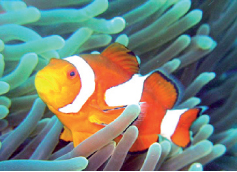What are coral reef services worth?
 |
|
Biodiversity
of coral reefs |
Experts concluding the global DIVERSITAS biodiversity conference held
recently in Cape Town described preliminary research revealing
jaw-dropping dollar values of the ecosystem services of biomes like
forests and coral reefs including food, pollution treatment and climate
regulation.
Undertaken to help societies make better-informed choices, the
economic research shows a single hectare of coral reef, for example,
provides annual services to humans valued at US $130,000 on average,
rising to as much as $1.2 million.
The work provides insights into the worth of ecosystems in human
economic terms, says economist Pavan Sukhdev of UNEP, head of a
Cambridge, England-based project called The Economics of Ecosystems and
Biodiversity (TEEB).Based on analysis of more than 80 coral reef
valuation studies, the worth of services per hectare of coral reef
breaks down as follows:
•Food, raw materials, ornamental resources: average $1,100 (up to
$6,000);
•Climate regulation, moderation of extreme events, waste treatment /
water purification, biological control: average $26,000 (up to $35,000);
 |
|
Colourful
coral |
•Cultural services (eg. recreation / tourism): average $88,700 (up to
$1.1 million)
•Maintenance of genetic diversity: average $13,500 (up to $57,000)
Taken together, coral reef services worldwide have an average annual
value estimated at $172 billion, says Mr. Sukhdev.
He notes the growing scientific agreement that coral reefs are
unlikely to survive if atmospheric carbon dioxide levels exceed 350
parts per million. Negotiators of a new climate change deal in
Copenhagen in December, however, would be proud to achieve an agreement
that limits atmospheric carbon to 450 parts per million, he says,
calling that a death sentence on the worlds coral reefs.
Halving the destruction of tropical forests, meanwhile, would allow
them to continue absorbing roughly 4.8 gigatonnes of carbon per year
- bio-medicine.org
|

